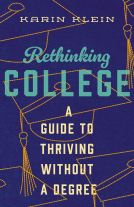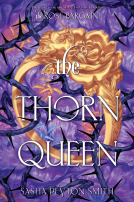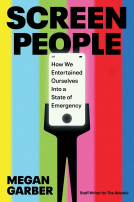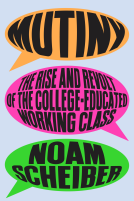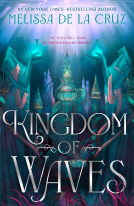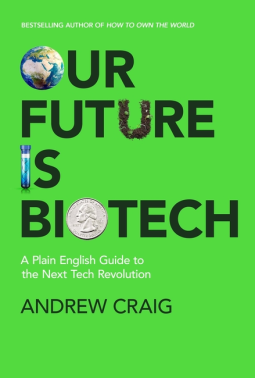
Our Future is Biotech
A Plain English Guide to How a Tech Revolution is Changing Our Lives and Our Health for the Better
by Andrew Craig
This title was previously available on NetGalley and is now archived.
Send NetGalley books directly to your Kindle or Kindle app
1
To read on a Kindle or Kindle app, please add kindle@netgalley.com as an approved email address to receive files in your Amazon account. Click here for step-by-step instructions.
2
Also find your Kindle email address within your Amazon account, and enter it here.
Pub Date Aug 29 2024 | Archive Date Sep 13 2024
Nicholas Brealey US | John Murray Business
Talking about this book? Use #OurFutureisBiotech #NetGalley. More hashtag tips!
Description
"An essential read for anyone committed to understanding the technologies that will define our future." CHRISTIAN ANGERMAYER, BIOTECH ENTREPRENEUR AND FOUNDER OF APEIRON INVESTMENT GROUP
Welcome to the biotech revolution
In the last century, technology has transformed the human experience across the world. This has been super-charged by the arrival of the internet, smart phones, AI and machine learning, and created trillion-plus dollar companies and household names like Apple, Amazon, Google and Microsoft.
Our Future is Biotech explains why biotech is next: because our biggest remaining challenges as a species concern biological systems.
Biotech companies will solve our most intractable problems, from cancer, dementia, obesity and diabetes to elderly care, mental health conditions, and even clean power generation, agricultural production and environmental degradation.
Biotech means that we can all live better, safer, healthier, wealthier, happier, and longer lives.
The industry has already delivered "miracle cures" for several diseases, and there is more to come. But despite this, few people are aware of the phenomenal progress being made. Our Future is Biotech addresses this, explaining what biotech is, what is coming next, and how you might profit from it too.
Tech has been the most important theme for human progress for the last century. Biotech is next.
Available Editions
| EDITION | Other Format |
| ISBN | 9781399800174 |
| PRICE | £24.99 (GBP) |
| PAGES | 272 |
Available on NetGalley
Average rating from 16 members
Featured Reviews
The book is excellently written and has broadened my understanding of various technologies and concepts that were previously unknown to me. As someone who enjoys reading about science and biotechnology, I found it to be very informative. I highly recommend it to anyone who shares similar interests. The book is easy to comprehend and effectively communicates complex scientific topics. I am grateful for the opportunity to access this book and extend my appreciation to Net Galley, the publisher, and the author.
Going to be very interesting to come back to this book in 20-30 years and see what's changed. I loved his style of writing and everything was very clear and engaging!
 Katie O, Reviewer
Katie O, Reviewer
Thank you NetGalley for a prerelease of Our Future is Biotech.
Andrew Craig does an exceptional job outlining the value biotech companies have to offer. You don’t need a STEM degree to understand this book. if you have an interest in biotech, go get your copy!
Andrew Craig, the author of Our Future is Biotech, has spent his entire career in finance. His interest in biotechnology grew over six years when he was a partner in an investment bank specializing in biotechnology and life sciences. He developed a comprehensive understanding of the field through diligent research and communication with the biotech community.
Andrew strongly advocates biotechnology, and his enthusiasm shows throughout the book. He envisions the development of the biotech industries to be exponential rather than linear. The interaction of many different technologies feeds this exponential growth. Andrew’s view of biotechnology goes beyond biology, including artificial intelligence, robotics, and digital manufacturing.
Andrew describes several significant challenges facing the biotech industry. As a person closely associated with finance, Andrew spends considerable time discussing investments in biotech. Investments are going quite well, but individuals can work with financial advisors. Another challenge is the public perception of biotech. People tend to have negative views about things they do not understand, and the press may reinforce these beliefs. A primary goal of the book is to help the reader better understand biotech. A third challenge is implementation by the medical community. There is a multitude of factors that explain why medicine may be reluctant to adopt a new technology. However, specialized medical centers exist that can rapidly apply biotechnology.
Andrew describes modern medicine as “sick care” rather than “health care.” He envisions a future called “Medicine 3.0,” which is more directed toward determining the root causes of illnesses rather than treating symptoms. Due to the extraordinary complexities involved, biotech can have a prominent role in this new vision.
Modern medicine has brought many tools to conquer disease, including antimicrobials, vaccines, and small-molecule drugs. A wide range of biotech-related treatments has resulted from a greater understanding of how the immune system and DNA/genes work. These new treatments have been called “miracles” as they provide advanced treatments for previously incurable diseases. Robust new diagnostic procedures have been developed using other advanced technologies, including big data, computing power, and gene sequencing.
However, after achieving these successes, “diseases of modernity” have appeared, including increased incidence of allergies and autoimmune diseases. Actions such as excessive antibiotic use and strict sanitation have resulted in a dysfunctional microbiome (the essential microbial population of the gut). Biotech is uniquely suited to analyze the microbiome.
Andrew has placed these new developments in political and social contexts, including their high costs and regulatory difficulties. He stresses that patients should act as partners for their health through diet, exercise, and meditation.
Andrew expands on the applications of biotech, including environmental issues.
Overall, the book presents an impressive case for embracing biotech for the future.
An interesting book, it took me a while to read as it was one I dipped in and out in between other books of rather than reading all in one go. I did enjoy it though and it as thought provoking.
Readers who liked this book also liked:
L.M Montgomery
Children's Fiction, Comics, Graphic Novels, Manga, Teens & YA
Sir Arthur Conan Doyle
Comics, Graphic Novels, Manga, Mystery & Thrillers, Teens & YA
Fortesa Latifi
Nonfiction (Adult), Parenting, Families, Relationships, Professional & Technical


